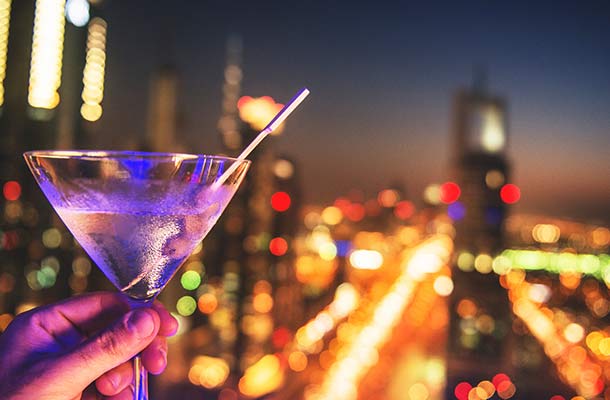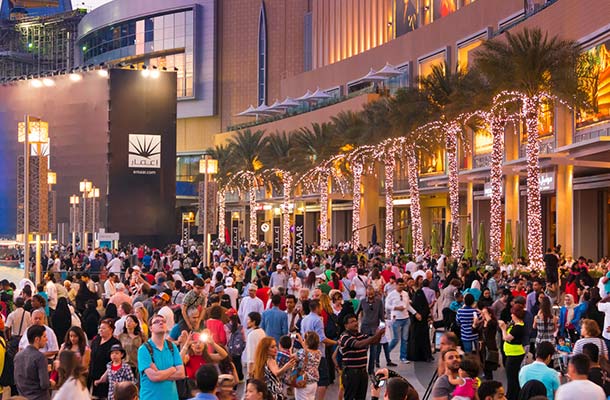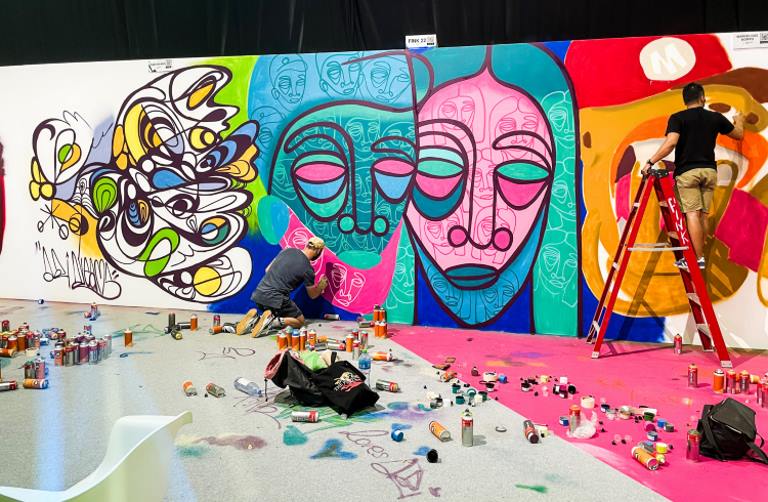Alcohol in the UAE: Laws Travelers Need to Know About
UAE is under Sharia law, but that doesn't mean you are completely banned from drinking in the country. Find out where and when you can drink with these tips.
 Photo © iStock/franckreporter
Photo © iStock/franckreporter
The reputation of Dubai being a party city with fantastic boozy brunches precedes it. So much so, that many travelers completely forget that they are still in the Middle East, that the UAE operates under Sharia law, and that alcohol is basically illegal. But fret not, the brunches are boozy, and there are plenty of bars where you can work your way through the cocktail menu, you just have to bear in mind a few rules.
License to drink in UAE
For visitors to most of the emirates, it has been possible to drink in bars and restaurants for years. Non-Muslim expat residents needed to get a licence to buy alcohol from specific shops for consumption at home and, legally speaking, were required to carry that licence if they wanted to drink in establishments outside of their own home.
However, each emirate, despite being governed under the overall laws of the UAE, operates under slightly different rules. This means that, for example, the emirate of Sharjah has always been and still is a ‘dry’ emirate, with no alcohol served even in international hotels. However, in the emirate of Ajman, expatriates have never needed a permit to buy alcohol. That said, if you lived in Dubai, for example, and bought alcohol in Ajman, it would have strictly forbidden to drive with the alcohol back through Sharjah.
New attitudes and laws in UAE
Apart from Sharjah remaining an alcohol-free emirate, under recent widespread reforms, the UAE laws have been amended. In early 2022, many of the previously deemed draconian laws were relaxed and updated, from those concerning drugs to those previously forbidding cohabitation of unmarried couples, to the attitude to drinking alcohol.
Under the new laws, expats are no longer required to obtain a licence to drink in hotels, nor do they need a licence to buy it from stores. However, you do need to be at least 21 to drink. Tourists, who previously needed to obtain a temporary licence to buy alcohol, can now visit any of the alcohol stores, such as Maritime and Mercantile International, and African & Eastern in the UAE, just showing their passport. But they do need to drink in their residence.
What is illegal in UAE?
While it is legal to drink alcohol in your home, and in bars and restaurants, these need to be licenced bars and restaurants, and those are mostly found in hotels. If you are, for example, caught drinking on a non-hotel beach or in a park, despite having been allowed to buy the alcohol, that is illegal. Walking outside, drink in hand, is not allowed, nor is being drunk in public. While most taxi drivers are used to ferrying intoxicated visitors around after brunch, or at night, it is best to dry and be on your best behavior, as some taxi drivers have been known to report very drunk revellers to the police.
There is still a distinct disapproval of underage drinking, including strict rules about the distribution of alcohol to those under the age of 21.
The UAE has an absolute zero-tolerance approach to drink – and drug – driving, and not even the consumption of a single liqueur chocolate is acceptable. Penalties are huge, a minimum of Dhs20,000 (roughly US$5,500/ AU$7,800), and imprisonment is highly likely.
It is fair to say that for the average traveler, there will be no problem when it comes to drinking in the UAE. While you might not be able to get a cocktail in the kebab shop next to the hotel, you can drink the pricey alcohol in hotel bars and restaurants. There are also good deals for brunches and there are happy hours.
Related articles
Simple and flexible travel insurance
You can buy at home or while traveling, and claim online from anywhere in the world. With 150+ adventure activities covered and 24/7 emergency assistance.
Get a quote

3 Comments